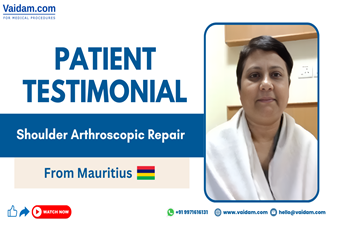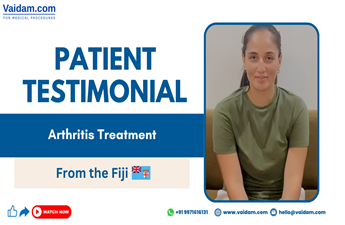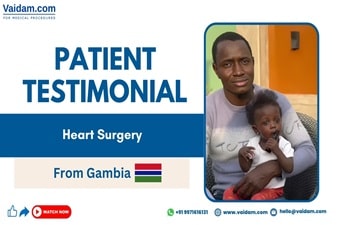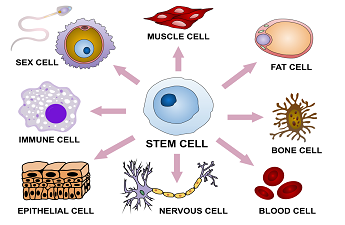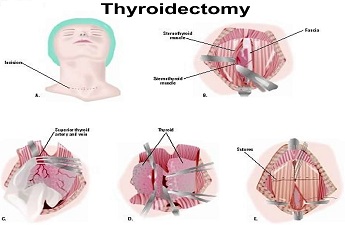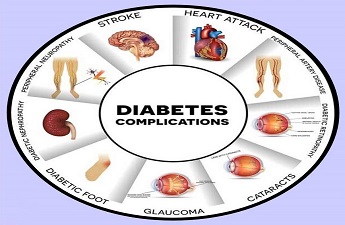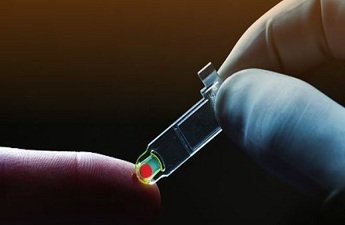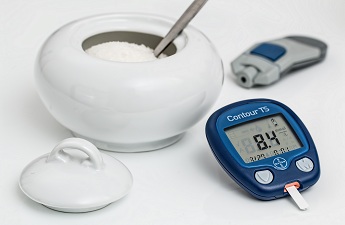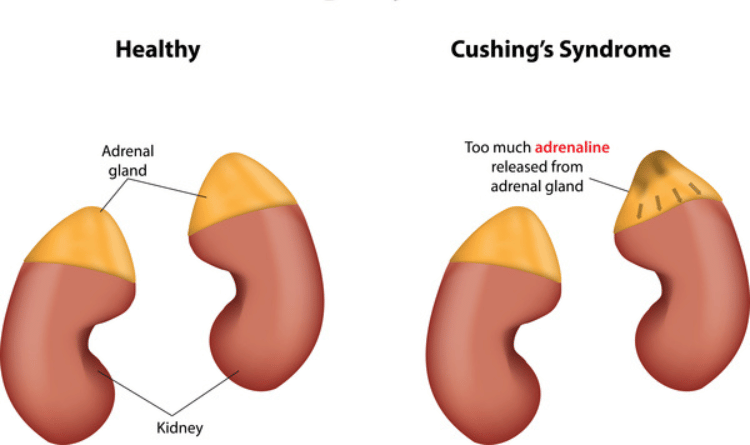
Cushing syndrome is an uncommon condition when your body has high cortisol levels. Another word for Cushing syndrome is hypercortisolism. This is not one disease but a group of diseases. Usually, Cushing syndrome results from certain medications that lead to high cortisol levels in the body.
What is the Role of Cortisol in the Body?
Cortisol, also known as the stress hormone, is secreted by the adrenal glands. It plays an important role in the following types of processes going on in the body:
- Helps control your body's use of fats, proteins, and carbohydrates, or your metabolism
- Suppresses inflammation
- Regulates blood pressure
- Regulates blood sugar
- Helps control the sleep-wake cycle
- Regulates the body's stress response
Get in Touch with Medical Experts
What is Cushing Syndrome Caused By?
-
Pituitary Adenomas - Cushing's Disease
Pituitary adenomas are benign pituitary gland tumors that secrete increased amounts of Adrenocorticotropic hormone (ACTH). This increased ACTH causes excessive cortisol production. Most patients have a single adenoma. Cushing's disease, accounting for 60-70% of all cases, is the most common cause of spontaneous Cushing's syndrome.
-
Ectopic ACTH Syndrome
Ectopic ACTH syndrome occurs when benign or malignant (cancerous) tumors outside the pituitary gland produce ACTH. Common tumor types that produce ACTH are Lung tumors [(malignant adenomas or carcinoids), pancreatic islet cell tumors, medullary carcinomas of the thyroid, and thymomas.
-
Adrenal Tumors
An adrenal tumor can lead to Cushing's syndrome. Most cases involve non-cancerous tumors called adrenal adenomas, which release excess cortisol into the blood.
-
Familial Cushing's Syndrome
Not all cases of Cushing's syndrome are inherited. However, some individuals may develop it due to a genetic predisposition to endocrine gland tumors.
-
Prolonged Glucocorticoid Therapy
Cushing syndrome may also occur due to taking glucocorticoid hormones. These hormones are chemically similar to the natural cortisol. The glucocorticoid hormones include medications such as prednisone, usually prescribed for asthma, rheumatoid arthritis, lupus, or other inflammatory diseases. Such hormones are also taken after an organ transplant to suppress the immune rejection of the transplanted organ.
Who is More Prone to Have Cushing Syndrome?
As per the statistics, the condition is frequently observed in adults of age 20-50 years. Moreover, it is three times more common in women than in men. People who are obese and have type 2 diabetes are also more prone to have Cushing syndrome.
In rare cases, a person may also have an inherited gene mutation like Multiple Endocrine Neoplasia Type 1 (MEN-1). MEN-1 elevates the risk of developing tumors throughout the endocrine system, which includes pituitary and adrenal tumors.
What are the Signs of Cushing Syndrome?
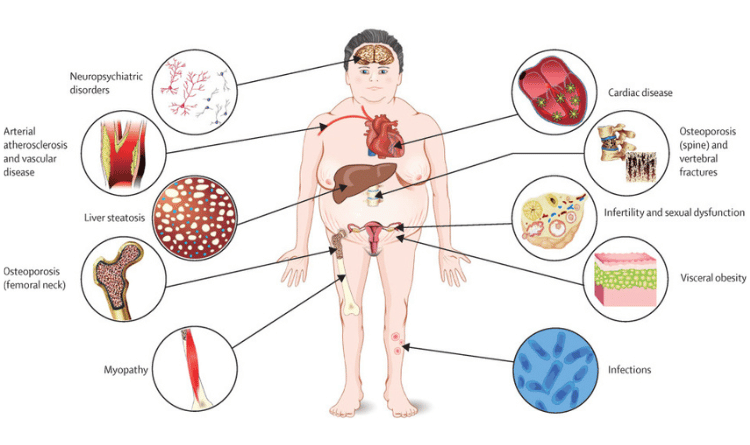
Following are the warning signs indicating that you must consult an endocrinologist:
- Round or moon-shaped face
- Extra fat accumulation in the neck and shoulder area
- Visual changes like glaucoma or cataract
- Increased risk of infection
- Obesity in the central body with thinner arms and legs
- Increased thirst and excessive urination
- Pink or purple colored streaks like stretch marks on the abdomen, thighs, and buttocks
- Thin, fragile skin, which gets bruised easily
- Hirsutism and irregular menstrual cycles in women
- Erectile dysfunction and reduced libido in men
Some other symptoms associated with Cushing syndrome are:
- Muscle weakness
- Decreased endurance
- Osteoporosis
- Raised blood pressure
- Elevated blood sugar levels
- Headache
- Back pain
- Slow growth in children with Cushing syndrome
- Mental ill health
- Acne
- Gradual healing of cuts, insect bites, and infections.
- Excessive fatigue
- Depression, anxiety, and irritability
How is Cushing Syndrome Diagnosed?
You must consult an endocrinologist if you notice one or more of the abovementioned signs. The doctor will take a detailed case history in which they will ask the patient about any other medical conditions.
One must tell the doctor about any past medical illness or family history. This is followed by a physical examination in which the physician will look for a moon-shaped face, fatty tissue around the neck or shoulders, and skin with bruises or stretch marks. Furthermore, some lab tests are also conducted, such as,
- Urine and blood tests: These tests are carried out to measure hormone levels in the urine and the blood. The urine is collected within 24 hours before the test.
- Saliva test: Normally, cortisol levels drop considerably by the evening. Hence, samples of saliva are tested late at night. If the cortisol levels are too high, it indicates a positive result for Cushing syndrome.
- Dexamethasone suppression test: The patient is asked to take a low dose of steroid pill at 11 pm, and the blood sample is taken in the morning to measure the amount of cortisol produced by the body. This test also distinguishes Cushing syndrome from Pseudo-Cushing syndrome.
- Radio-imaging tests: Tests such as CT or MRI scans help provide images of pituitary and adrenal glands to detect abnormalities like tumors.
- Petrosal sinus sampling: This test is done in cases of endogenous Cushing syndrome to know whether the source is a pituitary gland or an adrenal gland. Blood samples are obtained from the petrosal sinuses, which are responsible for draining the pituitary gland. A narrow tube is inserted through the upper thigh after sedation. The levels of ACTH are measured from the sinus. If the levels are high in the sinus sample, the origin lies in the pituitary gland. The origin of ACTH lies outside the pituitary gland if levels are similar in the sinus and forearm.
What is the Most Common Treatment for Cushing Syndrome?
The goal of the treatment is to reduce the elevated levels of cortisol. The best endocrinologists in India have devised the following treatment choices to treat patients with Cushing syndrome.
- Decreased use of corticosteroids - In cases where the cause is long-term use of corticosteroid medication, the doctor may ask you to reduce the dosage and sometimes replace it with non-corticosteroid medications. Corticosteroid medications are tapered down slowly instead of discontinuing abruptly.
- Chemotherapy - Chemotherapy is necessary if a tumor is cancerous and has spread to other body parts.
- Surgery - Surgery is the treatment choice when the cause is a tumor. A neurosurgeon removes a tumor present in the pituitary gland. The procedure is performed through the nose. Standard techniques may be followed with minimal invasion using small incisions if the tumor is present in the adrenal gland, lungs, or pancreas. The patients are given cortisol replacement medications to provide the correct amount of cortisol. The entire process can take up to a year or longer.
- Radiation therapy - This is also used in cases of tumors in addition to surgical removal. The radiation is given in small doses for six weeks. This is known as stereotactic radiosurgery.
- Medications - Drugs like ketoconazole, mitotane, and metyrapone are used to control the production of cortisol by the adrenal gland. Also, mifepristone is used for those with a history of type 2 diabetes or glucose intolerance.
Conclusion
Cortisol is a hormone that affects various bodily functions. Although there are ways to manage cortisol levels, such as stress reduction techniques, sometimes cortisol levels can be abnormally high or low despite these efforts. If you experience symptoms of high or low cortisol levels, it is important to consult with your healthcare provider. They can conduct simple tests to determine if your symptoms are caused by your adrenal or pituitary glands.



